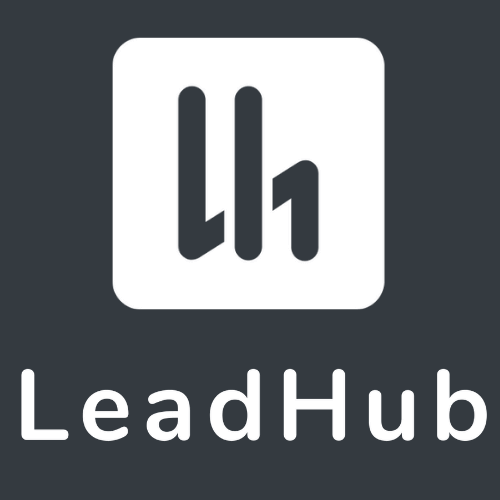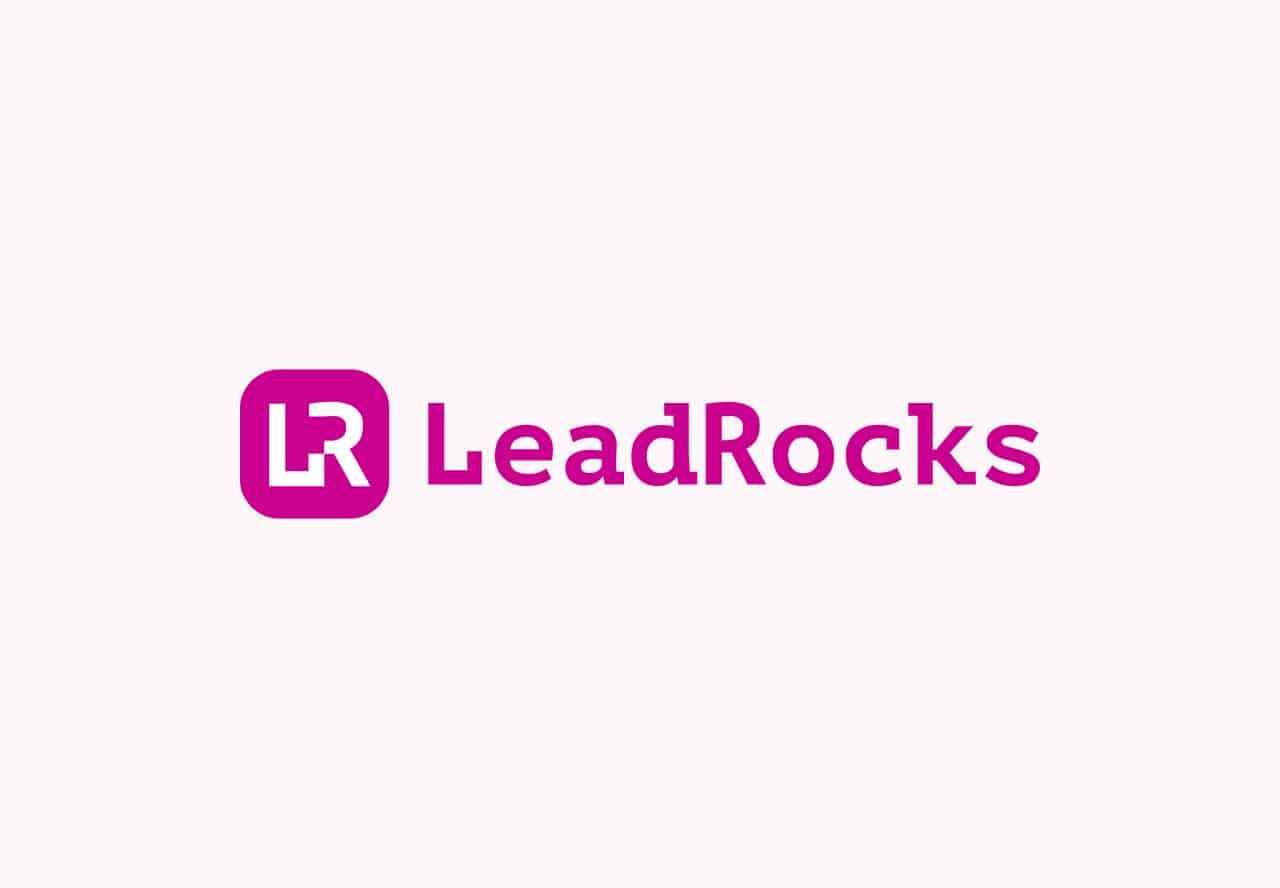Description

LeadMaster

LeadHub
Comprehensive Overview: LeadMaster vs LeadHub
LeadMaster and LeadHub are both popular customer relationship management (CRM) platforms that cater to businesses with lead generation and management needs. Here's a comprehensive overview of these products:
a) Primary Functions and Target Markets
LeadMaster:
Primary Functions:
- Lead Management: Facilitates the collection, categorization, and tracking of leads throughout the sales cycle.
- Marketing Automation: Provides tools for email marketing, campaign management, and performance analytics.
- Sales Force Automation: Automates various sales processes, including task assignment, tracking, and reporting.
- Reporting and Analytics: Offers comprehensive reporting features to analyze sales and marketing data.
- Customer Relationship Management: Aids in managing and improving customer interactions, enhancing customer satisfaction.
Target Markets:
- Small to Medium-sized Enterprises (SMEs): Particularly those looking for integrated marketing and sales solutions.
- Industries: Used across various sectors including real estate, insurance, manufacturing, and more.
LeadHub:
Primary Functions:
- Lead Capture and Management: Specializes in lead acquisition and maintaining updated and organized lead databases.
- Integration: Offers seamless integration with multiple third-party applications and CRM systems.
- Analytics and Reporting: Provides insights into lead sources, conversion rates, and campaign performance.
- Communication Tools: Includes features like automated emails, phone call tracking, and lead scoring.
Target Markets:
- Digital Marketing Agencies: Especially those needing advanced lead tracking and management capabilities.
- Enterprises: Businesses requiring robust integration abilities with existing CRM and operation systems.
b) Market Share and User Base
LeadMaster:
- Market Share: LeadMaster holds a moderate share of the CRM market, with a steady presence particularly in niche markets like real estate and insurance.
- User Base: It has a diverse user base of SMEs and is known for its scalability which allows businesses to grow without needing to switch platforms.
LeadHub:
- Market Share: LeadHub is considered a strong contender, particularly among marketing agencies and businesses emphasizing lead generation and analytics.
- User Base: It has a smaller but more specialized user base, focused on agencies and companies that prioritize integrated lead management solutions.
c) Key Differentiating Factors
LeadMaster:
- Integrated CRM Solution: Offers a comprehensive suite of CRM tools, making it ideal for businesses looking for a holistic approach to managing customer relationships.
- User-Friendly Interface: Known for an intuitive and easy-to-navigate interface that attracts SMEs.
- Customization Capabilities: Provides a high degree of customization to suit specific business processes and requirements.
LeadHub:
- Specialization in Lead Tracking: Excels in providing detailed lead tracking and reporting which is valuable for marketing-focused businesses.
- Integration Flexibility: Offers superior integration options with a variety of third-party and existing systems, making it a favorite for companies with complex system landscapes.
- Performance Analytics: Prioritizes detailed analytics for lead performance which assists in refining marketing strategies and campaigns.
In summary, LeadMaster offers a robust CRM-focused platform better suited for businesses wanting an integrated approach to sales and marketing processes, while LeadHub provides advanced lead tracking and integration capabilities that are particularly beneficial for marketing agencies and enterprises focused on sophisticated lead management solutions. Each platform offers unique strengths that cater to specific business needs, with LeadMaster being more versatile for overall CRM use and LeadHub excelling in lead-focused application.
Contact Info

Year founded :
Not Available
Not Available
Not Available
Bangladesh
Not Available

Year founded :
2011
Not Available
Not Available
United States
http://www.linkedin.com/company/lead-hub
Feature Similarity Breakdown: LeadMaster, LeadHub
When comparing LeadMaster and LeadHub, it's important to focus on their core features, user interface design, and unique capabilities. Here’s a breakdown based on these aspects:
a) Core Features in Common
Both LeadMaster and LeadHub are designed to support sales and marketing teams in managing their leads more effectively. They typically offer the following core features:
-
Lead Management: Both platforms enable users to capture and manage leads effectively, providing tools for lead tracking and nurturing.
-
Contact Management: They offer robust systems to organize and manage contact information.
-
Sales Pipeline Management: Users can track opportunities through various stages of the sales pipeline.
-
Email Marketing: Integration with email marketing tools to facilitate campaigns and communication with prospects.
-
Reporting and Analytics: Both offer dashboards and reporting features that provide insights into sales performance and marketing efficacy.
-
CRM Integration: Integration capabilities with popular CRMs to ensure seamless data flow and process management.
-
Automated Alerts and Notifications: Automation tools to keep teams informed and engaged with timely alerts about lead activities.
-
Customizable Dashboards: Users can customize their dashboards to fit their specific monitoring needs.
b) User Interface Comparison
-
LeadMaster is known for its comprehensive yet slightly traditional interface. It provides a range of functionalities all accessible from a centralized dashboard. While functional, some users may find its interface a bit cluttered due to the breadth of information available.
-
LeadHub, on the other hand, tends to focus on a more streamlined and modern user experience. It often presents information in a more minimalist fashion, which can make navigation simpler for new users or those less tech-savvy.
Overall, both interfaces are designed to improve user productivity but differ in terms of aesthetic and organizational complexity.
c) Unique Features
-
LeadMaster Unique Features:
- Integrated Call Center Functionality: LeadMaster includes built-in call center management tools, which can be particularly beneficial for organizations with a strong inbound/outbound tele-sales component.
- Advanced Customization Options: Offers extensive customization capabilities, allowing businesses to tailor the system to very specific needs.
-
LeadHub Unique Features:
- Social Media Integration: LeadHub places a greater emphasis on integrating social media platforms for lead generation, making it a valuable tool for businesses reliant on social channels.
- Mobile Optimization: Offers a more mobile-friendly experience with dedicated apps and design specifically catered to users on-the-go.
While both tools serve similar foundational purposes, the choice between LeadMaster and LeadHub may ultimately come down to your specific business needs and which unique features align better with your team's workflow and goals.
Features

Not Available

Not Available
Best Fit Use Cases: LeadMaster, LeadHub
LeadMaster and LeadHub are both customer relationship management (CRM) platforms designed to optimize sales, marketing, and lead management processes, but they have distinct features and strengths that cater to different business needs and scenarios.
a) For what types of businesses or projects is LeadMaster the best choice?
-
Small to Medium Enterprises (SMEs): LeadMaster offers a comprehensive suite of CRM tools that are ideal for small to medium businesses. Its user-friendly interface and cost-effective pricing make it an attractive option for companies that need robust CRM capabilities without a complicated setup.
-
Industries with High Lead Volume: Companies in industries such as real estate, financial services, and insurance, where managing a large number of leads is crucial, can benefit from LeadMaster's strong lead management and tracking features.
-
Businesses Requiring Marketing Automation: LeadMaster integrates marketing automation features with CRM, making it an excellent choice for businesses that want to align their sales and marketing teams closely.
-
Businesses Focused on Customer Service: The platform’s integrated customer support functions, such as ticketing and help desk features, are perfect for businesses that prioritize high-quality customer service.
-
Companies Seeking Customization and Integration: LeadMaster is known for its customizable nature and ability to integrate with various third-party tools, which can be beneficial for businesses with specific needs.
b) In what scenarios would LeadHub be the preferred option?
-
Startups and Agile Businesses: LeadHub is often favored by startups and small businesses that need a CRM system capable of adapting to rapid changes. Its flexibility and intuitive design can support fast-paced environments.
-
Teams Needing Collaboration Tools: LeadHub provides excellent team collaboration features, making it the preferred choice for companies where team synergy and communication are crucial for success.
-
E-commerce and Digital Marketing Agencies: With strengths in analytics and robust reporting, LeadHub is well-suited for e-commerce businesses and digital marketing agencies that rely on data-driven decision-making.
-
Organizations with Complex Sales Processes: Businesses with intricate sales pipelines or those needing detailed sales visualizations would benefit from LeadHub’s advanced pipeline management features.
-
Companies Leveraging Data Insights for Growth: LeadHub excels in providing insightful data analytics and reporting, making it ideal for companies that rely on metric-driven strategies to drive growth and improve customer engagement.
d) How do these products cater to different industry verticals or company sizes?
-
Industry Vertical Adaptation:
- LeadMaster offers industry templates and predefined solutions that can cater to specific sectors like health care, financial services, and education. This tailored approach allows businesses to quickly adapt the CRM to fit their industry-specific needs.
- LeadHub provides flexibility and customization that supports industries like retail, technology, and media, where companies may have more unique processes and a requirement for custom workflow development.
-
Scalability for Company Size:
- LeadMaster is particularly well-suited for small to mid-sized businesses that plan to scale. Its scalability ensures that as the business grows, the CRM can expand to meet increasing demands.
- LeadHub is capable of serving both small businesses and larger enterprises, thanks to its modular design. Enterprises can benefit from its extensive data handling capabilities and sophisticated reporting systems.
Both platforms offer valuable tools to manage leads and customer relationships effectively, but the choice between LeadMaster and LeadHub will ultimately depend on the specific needs, industry focus, and growth objectives of the business.
Pricing

Pricing Not Available

Pricing Not Available
Metrics History
Metrics History
Comparing undefined across companies
Conclusion & Final Verdict: LeadMaster vs LeadHub
To provide a conclusion and final verdict on LeadMaster and LeadHub, it's essential to explore the overall value each product offers, weigh their pros and cons, and provide specific recommendations for users deciding between the two.
a) Overall Value
Best Overall Value:
The best overall value depends on the specific needs and priorities of the business, but generally, if a company values extensive CRM functionalities and integration capabilities, LeadMaster might offer better overall value. On the other hand, if the priority is on a user-friendly interface with robust lead tracking capabilities in a straightforward manner, LeadHub could be the better choice.
b) Pros and Cons
LeadMaster:
Pros:
- Comprehensive CRM Features: Offers a wide range of CRM capabilities making it ideal for businesses needing robust contact management.
- Customization: Highly customizable to fit the specific workflow and process needs of different businesses.
- Integration: Strong integration capabilities with third-party apps, enhancing its utility in complex environments.
Cons:
- Complexity: The breadth of features can be overwhelming for smaller teams or those with limited technical expertise.
- Cost: May be costlier than more streamlined solutions, especially if all features are not utilized.
LeadHub:
Pros:
- User-Friendly Interface: Known for its intuitive design, making it easy for teams to adapt quickly.
- Lead Tracking: Specialized in lead tracking, providing clear and effective tracking tools.
- Affordability: Generally more affordable for small to medium-sized businesses focused primarily on lead management.
Cons:
- Limited Features: May lack the comprehensive depth of CRM features compared to LeadMaster.
- Integration Limitations: Might not integrate as seamlessly with certain third-party applications as LeadMaster.
c) Recommendations for Users
-
Assess Business Needs: Determine whether your primary need is comprehensive CRM capabilities or streamlined lead management. If you need extensive CRM functions and are dealing with large volumes of leads and complex processes, LeadMaster might be your go-to solution. If simplicity, cost-effectiveness, and specialized lead tracking are more aligned with your needs, LeadHub could be more suitable.
-
Consider Team Size and Technical Expertise: LeadMaster can be advantageous for larger teams with dedicated IT support, whereas LeadHub is ideal for smaller teams or those without deep technical know-how due to its ease of use.
-
Budget Evaluation: Analyze your budget constraints and the value of the features offered by each platform. If LeadMaster's extensive features provide a significant advantage that can be justified financially, it may be worth the investment.
-
Trial Versions: Where possible, take advantage of trial versions or demos of both products to get a feel for the user experience and functionalities to see which aligns best with your operational style.
-
Integration Needs: If your business relies heavily on integrating CRM with existing systems, LeadMaster may offer the superior choice in terms of integration capabilities.
Ultimately, both products serve distinct purposes and choosing the right one hinges on a careful evaluation of your business's specific context and requirements.
Add to compare
Add similar companies



